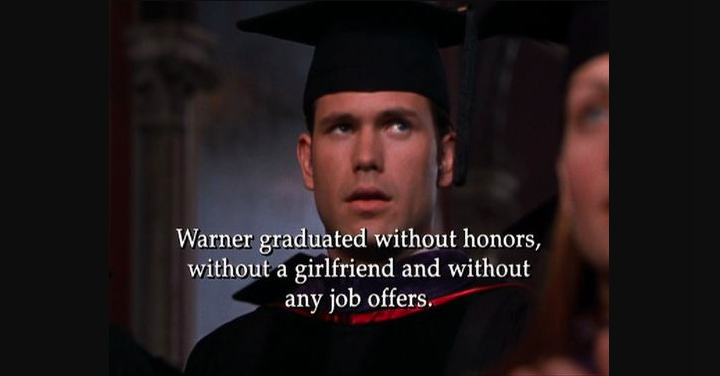Written by Constance Short
“What are you doing next year once you graduate Connie? Any jobs lined up?” The two dreaded questions constantly badgering me at family gatherings, social events, friends houses and even at my current retail workplace. The reality is, I don’t know.
Interrogation of your future plans post-university is easily one of the most stressful, sobering and irritating social occurrences as a young final-year undergraduate. But I now know for sure, I’m not alone. Recent research suggests that millennials have the highest rates of depression and anxiety of any generation, with job concerns high on their list of worries as they near university graduation.

“Graduating symbolises a leap into ‘adult’ life, which is a huge transition,” said Juli Fraga, a psychologist based in San Francisco who specialises in millennial student post-graduate depression. It’s often difficult to know which way to go, let alone which options are available and how to reach your desired end-game (if you even have one). Transitioning from university student life to the next stage is often met with the sense that everyone else has figured it out and is getting their dream jobs. That everyone else has it all together, when the reality is, most of us don’t.
“Completing a degree brings both opportunity and insecurity to many new graduates as they pursue a vision and career.” – Dr. Bernard Luskin
How can we be best prepared to move forward once we have our Bachelor’s certificates showcasing years’ worth of hard work, hangovers and great experiences? From kindergarten through school to university, education has provided us structure with set timetables and routine, yet after graduation, we’re somewhat expected to get a job straight away as you have a degree. Media and communications students have 74% graduate employment success within the first six-months post-graduation. But it’s important to understand and accept that not following or immediately ‘achieving’ this so-called ‘ideal’ is not the be-all-and-end-all of newly-graduate life.

Studying a degree brings its own stresses, but it should be acknowledged that if post-university prospects do not exceed or live up to expectations that students, their peers and families have for their futures, that the future is not dire. Post-graduate depression and anxiety is recognised as an emerging mental health issue for new graduates and one requiring awareness for those entering the real world and their peers. A change in understanding is required, one that communicates that joining the adult or ‘real world’ doesn’t have to directly correlate with landing that graduate job in your field of study straight away as there are options available. This is something I’ve recently learnt and aim to get atop of before graduating myself.
Not having a job to walk into does not automatically equal failure.
There’s more than one path to joining the ‘real world’, and it may involve kick-starting a whole new round of tertiary education, interning for six to twelve months in your chosen field, joining a global volunteer program, or running off to London to explore the expatriate life, the world is our oyster. Being prepared for the real world means we should be prepared for change and uncertainty. It’s important to use your aspirations as motivation, but it’s more important to have patience in the process.

Don’t obsess over your five-year plan (or lack thereof) Before you start freaking out about the next five years, focus on what you have achieved in the past three-five years – the fact that you’re about to graduate – a huge accomplishment in itself. You’ve juggled study, work, a social life and procrastination conjunctively, go you!
Understand that what you do now is not necessarily what you will do for the rest of your life If you’re not enjoying your current path or position, don’t stress! What you decide to do now is not a lock-in for the rest of your life. The fear of making the wrong choice creates unwanted, paralysing stress. The reality is, this is just the first of many next steps in your life and research tells us on average Australians make five to seven career changes in their lifetime.
Try not to compare yourself to your peers A great lesson to be learnt is that each person will reach their success at their rate via their own path. Some may land their dream jobs straight off the bat, while others might spend time developing their skills or travelling. No matter what, you’ll have friends and peers who excel faster and slower than you, and everyone (you included) will have a moment to shine.
At the end of the day, we are all in the same boat; alone but not alone. We all are heading in various directions, soon to be graduates in possession of at least one VERY expensive piece of parchment. So when you next get asked about your plans after university just remember that the road post-graduation is unknown but it’s the beginning of our next adventure and everyone has got to start somewhere.
